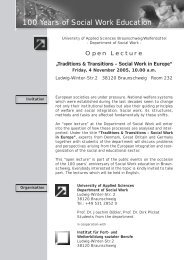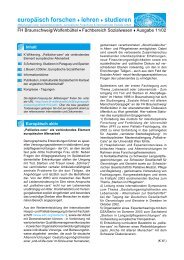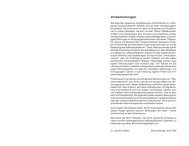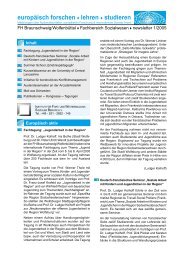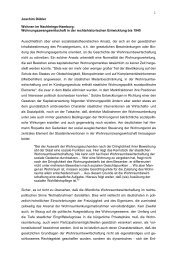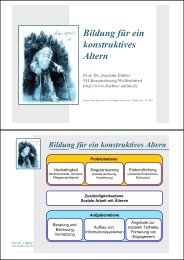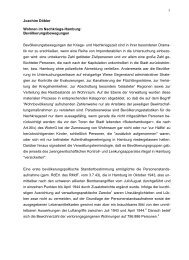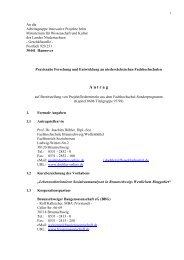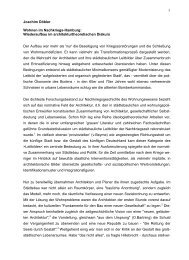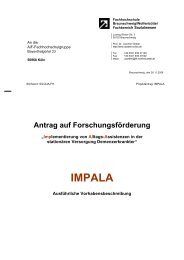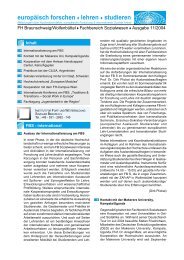CONTRIBUTIONS TO THE BOLOGNA PROCESS - Doebler-online.de
CONTRIBUTIONS TO THE BOLOGNA PROCESS - Doebler-online.de
CONTRIBUTIONS TO THE BOLOGNA PROCESS - Doebler-online.de
Create successful ePaper yourself
Turn your PDF publications into a flip-book with our unique Google optimized e-Paper software.
13Eastern Europe after the political changes that ma<strong>de</strong> full pan-European cooperationpossible.The ACE 3 professional section of the European Association for InternationalEducation (EAIE) has both some ENICs/NARICs and cre<strong>de</strong>ntial evaluators at highereducation institutions among its members. It contributes to both the <strong>de</strong>velopment ofpolicy and good practice and to the training of cre<strong>de</strong>ntial evaluators in Europeanstandards and practice.The Multi Country PHARE programme – both the recognition strand and the qualityassurance strand - contributed to <strong>de</strong>veloping recognition practice in the participatingPHARE countries and to <strong>de</strong>velop the national information centres in these countries. Theefforts ma<strong>de</strong> within both these strands with regard to dissemination have contributed tofacilitating cooperation between recognition and quality assurance specialists.Important <strong>de</strong>velopments have also taken place at regional and national level, both in theimplementation of recognition policies and practice and not least in the training ofcre<strong>de</strong>ntial evaluators as well as in awareness raising. For example, in many countriesnational seminars have provi<strong>de</strong>d training as well as a platform for discussion. In anotherexample, Estonia, Latvia and Lithuania have conclu<strong>de</strong>d a regional agreement onrecognition, based on the principles of the Lisboa Recognition Convention. At Nordiclevel, there is also a well-established cooperation in the field of recognition, both on thebasis of the 1975 Sigtuna Agreement, through cooperation in the framework of theNordic Council of Ministers and between the Ministries of Education of the Nordiccountries and through the Nordic Association of University Administrators (NUAS).There have also been important <strong>de</strong>velopments at institutional level, not least in the<strong>de</strong>velopment of double or multiple <strong>de</strong>gree programmes where stu<strong>de</strong>nts obtain elementsof their <strong>de</strong>gree at two or more institutions. The institutional agreements which form thebasis of these programmes represent a very concrete form of recognition.All of the above <strong>de</strong>velopments have contributed to and partly codified what is perhaps themost important <strong>de</strong>velopment of all: a change of attitu<strong>de</strong>s toward recognition. Instead ofmaking <strong>de</strong>tailed comparisons of reading lists and curricula, the assessment of foreignqualifications is increasingly seeking to <strong>de</strong>termine whether applicants have a comparablelevel of skills and competence as they would have had if they had held a <strong>de</strong>gree of thehome countries. This shift is reflected also linguistically, in that there is less talk about“equivalence” and more about “recognition”.3 Admission officers and Cre<strong>de</strong>ntial Evaluators. For further information, please see the ACE web page:http://www.lu.lv.ace.



